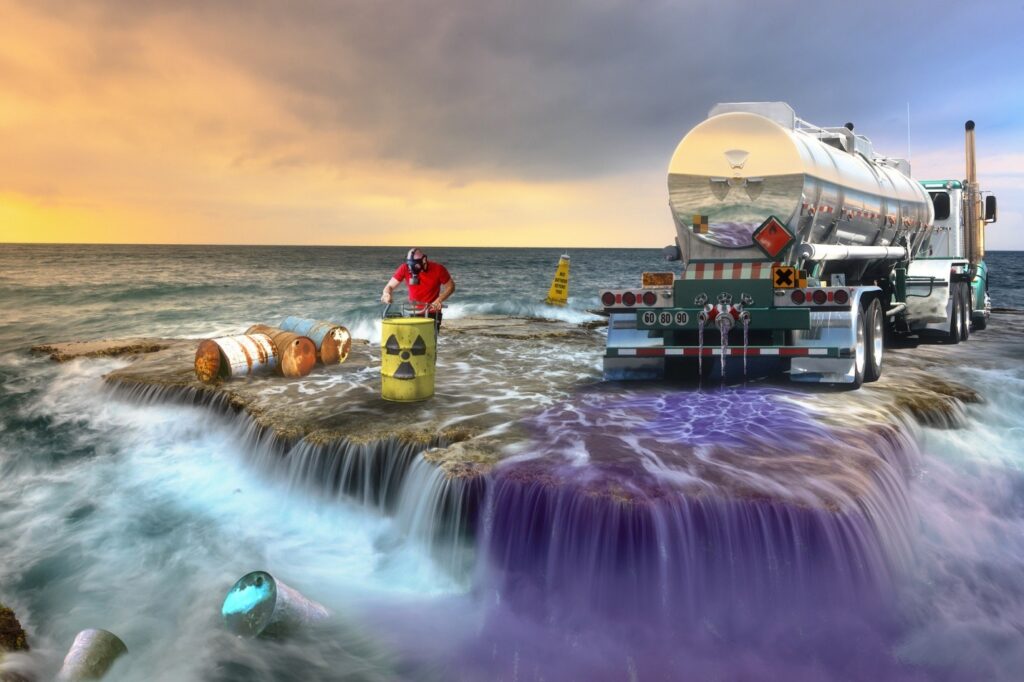Rumored Buzz on Reclaim Waste
Rumored Buzz on Reclaim Waste
Blog Article
The Buzz on Reclaim Waste
Table of ContentsReclaim Waste - QuestionsA Biased View of Reclaim WasteExamine This Report on Reclaim Waste3 Easy Facts About Reclaim Waste DescribedThe Only Guide for Reclaim Waste
Residential sewer waste refers to the waste and products from a property septic tank. The proper administration and disposal of residential sewer waste require fluid waste to be transferred to a sewer therapy plant where the correct approaches and devices are used to purify and dispose of waste.
Commercial waste frequently includes possible threats, such as flammable materials or a combination of fluid and strong waste items, and needs an advanced and thorough disposal process. The disposal of commercial waste generally involves the filtering of waste before transportation to make certain safe and proper disposal. Hazardous waste is developed from byproducts and runoff of commercial processes and manufacturing.
This kind of waste can not make use of the exact same sewer management transport or processes as septic or business liquids. The industrial waste management process requires the examination and screening of fluid waste before it goes through the disposal process (liquid waste disposal melbourne). Runoff waste is the fluid waste that comes from drainage and excess stormwater in highly booming areas or cities
Overflow waste can cause contamination and flooding if not managed appropriately. Discover more concerning sewage system cleaning and waste administration. Guaranteeing appropriate waste management can prevent calamities and decrease ecological harm. Both individuals in household setups and professionals in commercial or manufacturing markets can take advantage of recognizing the processes and guidelines of fluid waste monitoring.
Reclaim Waste - Questions
Call PROS Services today to learn regarding our waste management and disposal services and the correct ways to look after the liquid waste you create.
(https://ameblo.jp/reclaimwaste1/entry-12874802223.html)This supposed 'wastewater' is not just an essential resource but, after treatment, will be released to our land, waterways or the sea. Used water from toilets, showers, bathrooms, kitchen area sinks, laundries and commercial processes is understood as wastewater.

water used to cool equipment or clean plant and tools). Stormwater, a form of wastewater, is runoff that flows from farming and city areas such as roofing systems, parks, gardens, roadways, courses and gutters into stormwater drains, after rain. Stormwater flows without treatment straight to neighborhood creeks or rivers, eventually getting to the sea.
Facts About Reclaim Waste Revealed
In Queensland, most wastewater is dealt with at sewage treatment plants. Wastewater is carried from residential or commercial sites through a system of drains and pump terminals, known as sewerage reticulation, to a sewer therapy plant. City governments develop, maintain and run most sewage treatment plants. Operators are certified under the Environmental Security Act 1994 to release cured wastewater at an acceptable environmental requirement right into rivers.
The Division of Natural Resources encourages city governments concerning managing, operating and maintaining sewage systems and treatment plants. In unsewered locations, neighborhood federal governments may need householders to set up private or house sewer therapy systems to treat residential wastewater from toilets, kitchens, shower rooms and washings. The Department of Natural Resources authorizes using house systems when they are confirmed to be effective.
In some new class, therapy of some stormwater to get rid of litter, sand and crushed rock has begun using gross contaminant catches. Wastewater treatment occurs in 4 stages: Removes solid matter.
Makes use of little living microorganisms recognizes as micro-organisms to break down and remove continuing to be dissolved wastes and great particles. Micro-organisms and wastes are incorporated in the sludge.
Reclaim Waste - Questions
Nutrient elimination is not readily available at all sewage therapy plants because it calls for pricey specialized devices. Clear fluid effluent created after therapy might still consist of disease-causing micro-organisms - liquid waste removal melbourne.

Most wastewater streams into the sewerage system. Under the Act, regional governments provide authorizations and licences for eco pertinent tasks (Ages) involving wastewater releases that could have a regional effect.
The Only Guide to Reclaim Waste
Surveillance gives accurate info about water quality and can confirm that licence problems are being met. The info gotten via surveillance supplies the basis for making water top quality choices.
Report this page